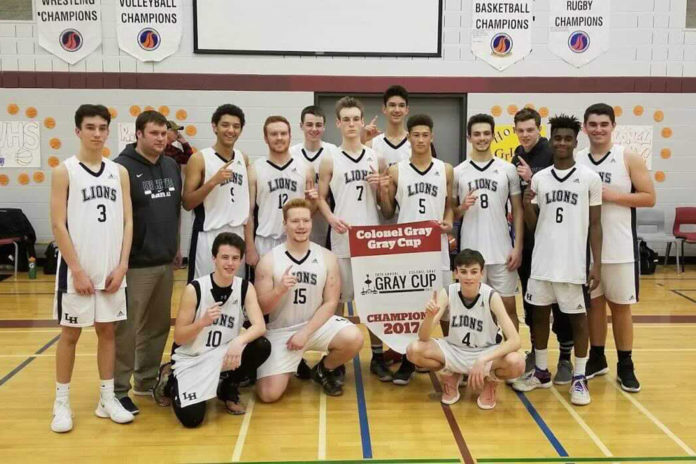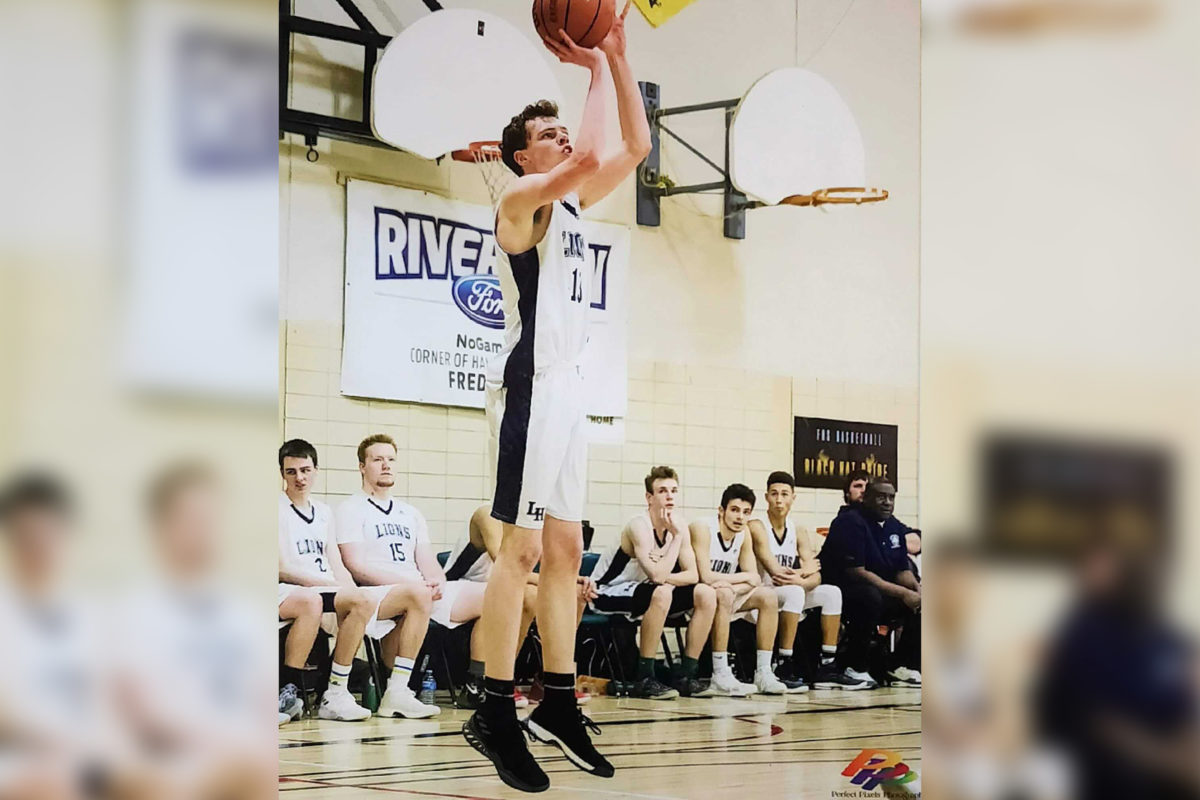

I’ve been interested in sports for as long as I can remember. But no matter how much I cared about a specific sport, my ability never clicked. I was no prodigy—not even average at most sports.
It started with soccer when I was four and flag football not long after at age seven. It was Grade 6 before I realized my toothpick of a frame wasn’t meant to play football and I should switch to the sport made for human toothpicks: basketball.
Legendary New Brunswick basketball coach John Hickey was my coach and boy, did we ever work on the fundamentals. We weren’t allowed to dribble the ball, instead focusing on making good passes and moving the ball. Somehow, though, I wasn’t deterred from the game.
Now you might think basketball was an obvious choice for this scrawny, lanky, uncoordinated kid. But for some reason, I’d never had the chance.
Through middle school, I worked hard and had some success but it would all change in high school. In my first years of high school basketball, I rarely touched the court. I don’t know why I was picked for the team in Grade 10. I wasn’t skilled and there were better athletes than me available. I think my coach saw a contagious work ethic in me.
That season changed a lot of things for me. I became good friends with my teammates as we made our way through a season of 6 a.m. practices, nail-biter wins and train wreck losses.
Grade 11 was a similar season. I played with a lot of the same teammates and we even made the provincial final, only to choke to our crosstown rivals in the end to lose.
Grade 12 came and I thought it would finally be the year I’d play on the varsity team and show my talent. I’d been attending open gym time with the new varsity coach, trying to improve and get my foot in the door.
After the final tryout, my coach pulled me aside and offered me a chance to be the team manager. He didn’t want to cut me but didn’t have a roster spot. This way, I’d practice and travel with the team and wear a jersey if someone couldn’t make it.
I told him I’d think it over.
The night before, I looked at the list of players at the tryout and compared myself to everyone to see if I’d make it. I figured it would be tight for me to make it, but I still thought I would. I was disappointed, to say the least.
After some persuasion from my old teammates and the coach, I agreed to stay with the team as manager. I actually played in our first tournament of the season but wasn’t able to keep playing for over a month after. So I kept my head down, never missing a practice and always giving 100 per cent.
In the second half of our season, things took a turn. I remember sitting in the locker room as my teammates got dressed for a game. I was wearing my team polo shirt and some freshly-ironed khaki pants. My clipboard was ready and my way-too-expensive mechanical pencil had a new piece of led.
One of my teammates came into the locker room and asked me, “Aren’t you playing today, Pete?”
Then a few other guys chimed in and said I should see the coach. When I found him, he asked if I brought my jersey. I was going to get in the game. One thing he didn’t know was I always packed my bag with my jersey and sneakers.
For the rest of the season, I wore my jersey every game. No more stat-taking. I warmed up and tried to dunk in the layup lines like everyone else. Sometimes I even played.
My best memory of the season came in one of our last tournaments. We were playing a far inferior team. By halftime, we had a more than safe lead. It was time for the bench to shine.
I set a screen for my point guard Rees and popped to the right wing of the court. My man stayed with Rees, so I was wide open. He dished it to me and I pulled up.
Before I go any further, you have to understand in those days I was not known as a shooter. I stayed as close to the basket on offense as possible. Seriously. I was not a shooter.
But in this instance, my instincts told me to let it fly. I followed through, flicking my wrist and holding my arm up.
Swish. Cash. Money. Whatever you want to call it, I drained it. The crowd loved it. I couldn’t help but grin as I ran back on defense.
That was the only thing I remember about that game. What I would find out later was there was a photographer at the game who snapped a picture of me taking my one jump shot — coincidentally my only jump shot of the season. At our end-of-season awards banquet, my coach gifted me a framed print of that picture, which I still keep tucked away in a closet.

That picture reminds me of a famous postgame speech that Boston Celtics forward Brian Scalabrine gave after the Celtics won the 2008 NBA Finals.
The reporter asked Scalabrine, “How is it for you, watching it from the sideline, not able to play even one little second in the Finals. Is that hard?”
Scalabrine responded, “Why would you think that’s funny? I’ll tell you, it’s not that difficult to do because guess what? Maybe now, you can say I didn’t play a second. But in five years, you guys will forget. In 10 years, I’ll still be a champ. In 20 years, I’ll tell my kids I probably started. And in 30 years, I’ll probably tell them I got the MVP, so I’m really not too worried about it!”
Scalabrine is right. People forget. You’ve got to find your joy from those moments and remember it. Everything else will fade.
Looking at that picture, you wouldn’t be able to tell the six players sitting behind me were all objectively better than me. It’s just one guy shooting a ball.
Here’s the thing. Kids hear about athletes like LeBron James or Tom Brady. They watch documentaries and interviews where superstars say anyone can get to where they are if they just work hard. Then they bring up some buzz words like “determination” and “dedication” and that’s it. Easy, eh?
But not everybody has that potential. In fact, the overwhelming majority of people don’t.
Grade school team sports, as cliché as it sounds, are about much more than winning. It’s about learning to work with people who are better than you and learning to teach people who have less skill than you. It’s about learning what disappointment and success feel like and knowing how to recover after both. It’s also about time management skills, juggling all the commitments you have as a student-athlete. It’s about the people you meet and form connections and friendships with that’ll last a long time.
